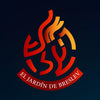Parasha of the Week RSS
"Parasha tetzave"
"You shall also command the children of Israel to bring pure, pressed olive oil to light the lamp continually" (Shemot - Exodus 27:20) The name of this Parasha is "Tetzave" from the book of Shemot - Exodus 27,20 - 30,10) The power of self-nullification or cancellation that must awaken in each of us so that we can be able to enlighten ourselves "Lighting the Menorah", אור המנורה- האור הגנוז (Or HaMenorah - Or Haganuz) The Eternal One commanded Moshe... "You shall also command the children of Israel to bring pure, pressed olive oil to light the lamp continually" (Shemot -...
Parasha teruma
"Speak to the Children of Israel and tell them to take an offering for Me" (Shemot-Exodus 25:2) We wonder why the Torah uses the word veikju (which take) and not twenty-one (give)? The sages explain to us that what a person truly has materially is what he gives for tzedakah (charity). While someone may have a lot of money, it is not considered to belong to them, but rather it has been "deposited" in their hands temporarily. Only what he gives for tzedakah belongs to him!, just as our Sages said regarding King Munbaz.Therefore it turns out that in fact...
Parasha "BO" (Shemot - Exodus)
"It is not possible to achieve the ideal without suffering." Parasha "Bo" (Shemot-Exodus 10:1 - 13:16) In this Parasha we can learn that it is possible to escape from any exile! Our Patriarchs had to endure great suffering and hardship before entering the Land of Israel...The hardest thing they endured was the mockery, ridicule, and slander of "the cynics who tried to discourage them" and turn them away from their ideal! (Likutey Moharan 1:72)We should never be discouraged, but rather we should motivate ourselves to overcome these obstacles, and be very wary of those "cynics" who try to discourage us...
Parasha Shemot
“And it came to pass during those many days, that the king of Egypt died, and the children of Israel sighed because of their toil and cried out; and their sighing because of their toil went up to the Creator. The Creator heard their cry, and God remembered His covenant with Abraham, with Isaac, and with Jacob.(Shemot-Exodus 2:23-24)The people of Israel cried out to the Eternal because of the terrible Egyptian slavery, and the Torah tells us that God heard their cry, that is, their prayer. The verses also recall the covenant between God and the holy Patriarchs regarding the...
Parasha Vaigash
“Israel traveled with all he had; he arrived at Beer Sheva and offered offerings to the God of Yitzchak, his father” (Bereishit 46:1) Rashi explains about the phrase “to the G-d of Yitzchak, his father” that a person should honor his father more than his grandfather, therefore Yitzchak was mentioned and not Abraham.When Yaakov Avinu was informed that Joseph was alive in Egypt, he was overjoyed beyond measure. This was primarily due to the fact that Joseph had governed himself and had not forgotten the Torah he had learned. Yaakov did not rejoice in the political and physical power that...





